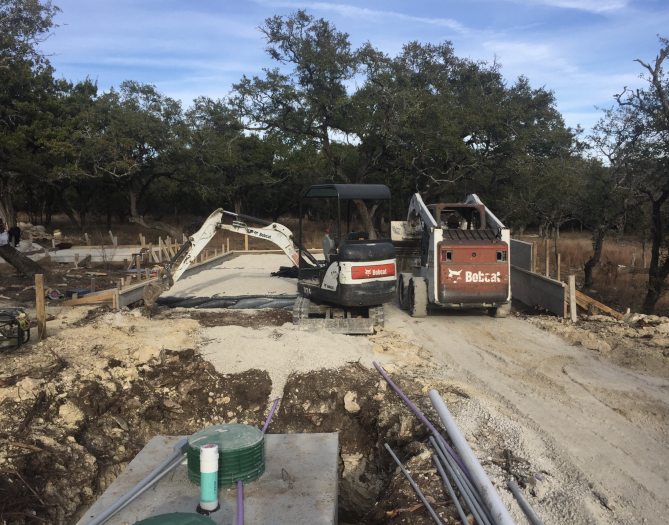It's often the last thing you want to discuss when buying a new home, but it's one of the most important things about your home: We're talking wastewater, folks! If you have a septic system now, or may see one in your future, knowing how to care for it and what matters most can save you money and frustration.
Household septic system tanks are typically pumped every three to five years. Alternative systems with electrical float switches, pumps, or mechanical components should be inspected once a year. Keeping a system maintained is crucial to the health of your tank.
For example, you’ll want to regularly inspect it to keep it in working condition. Routine maintenance can lengthen the life of your septic system.
Additional ways to show your septic system a little tender loving care include:
- Be sure to pump your septic tank when needed. How often you pump depends on the amount of water use in your household or business. Generally, the more people who use your septic system, the greater your water flow. This means your septic tank will fill up faster and will require more frequent pumping.
- Keeping your septic tank lids closed and secured to avoid safety hazards. Check to ensure your access lids are sturdy and secure so that no one falls in accidentally.
- Pay attention to the amount of water you use. Using less water may increase the life of your septic system. Using too much water is a frequent factor in failed systems.
- Grass is the best cover for your septic tank and sprinklers or drain fields. Other plants with shallow root systems can also be used for landscaping.
- Avoid using garbage disposals when possible. Solids and grease can build-up quickly and clog your sprinklers and drain fields.
- -Don’t flush anything but toilet paper. Do not flush cleaning wipes – even if they say they are “flushable.” Throw away these along with baby wipes, facial tissue, personal care products, or paper towels.
If you are buying a home with a septic system, we recommend the following:
Check the age of the septic system. A well-designed, professionally installed septic system can last 25 to 30 years. To keep yours up and running, avoid rinsing and flushing items that can clog fields and cause problems. A few of the culprits are dental floss, coffee grinds, kitty litter and paint. For a complete list, visit https://www.epa.gov/septic.
Know what capacity of the septic tank you will need. It depends mostly on the size of the house and the number of people who will reside there. In Texas, the county regulates septic systems. They will provide a “formula” that the licensed installer will use to ensure it’s adequate. Common residential septic tanks range in size from 750 gallons to 1,250 gallons.
Have the septic system inspected. A full inspection includes a complete examination of the inside of your septic tank to check the water level and evaluate the tank’s performance. In most cases during a full inspection, the septic tank is pumped, and the sprinkler system or drain field is monitored for backflow.
Commit to maintaining your system. Keeping a system maintained is crucial to the health of your tank.
If you have more questions about buying a home with septic systems, contact a Dripping Springs Elite real estate agent, or one of our preferred partners who specialize in wastewater management.

